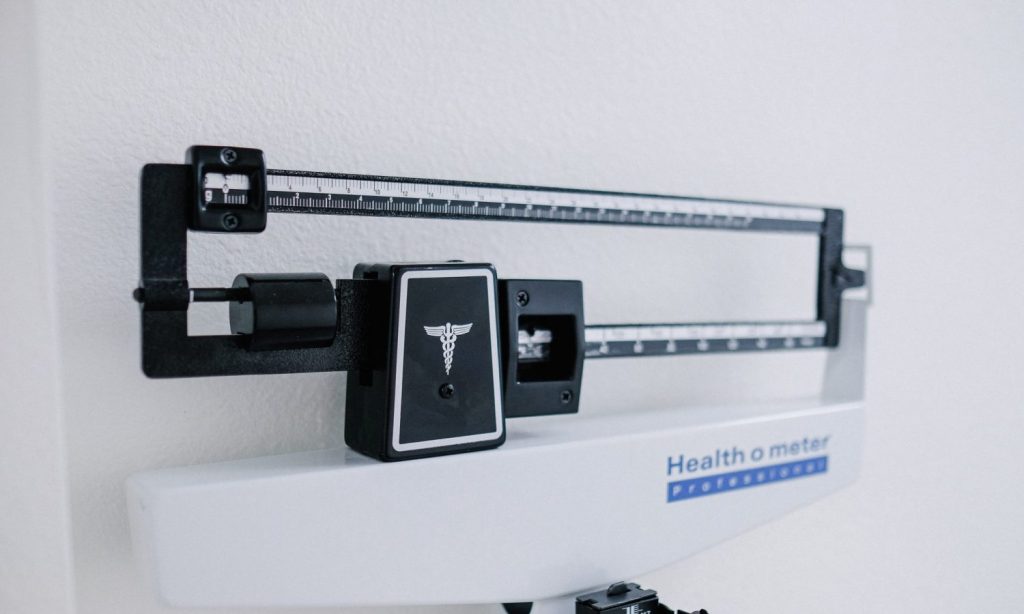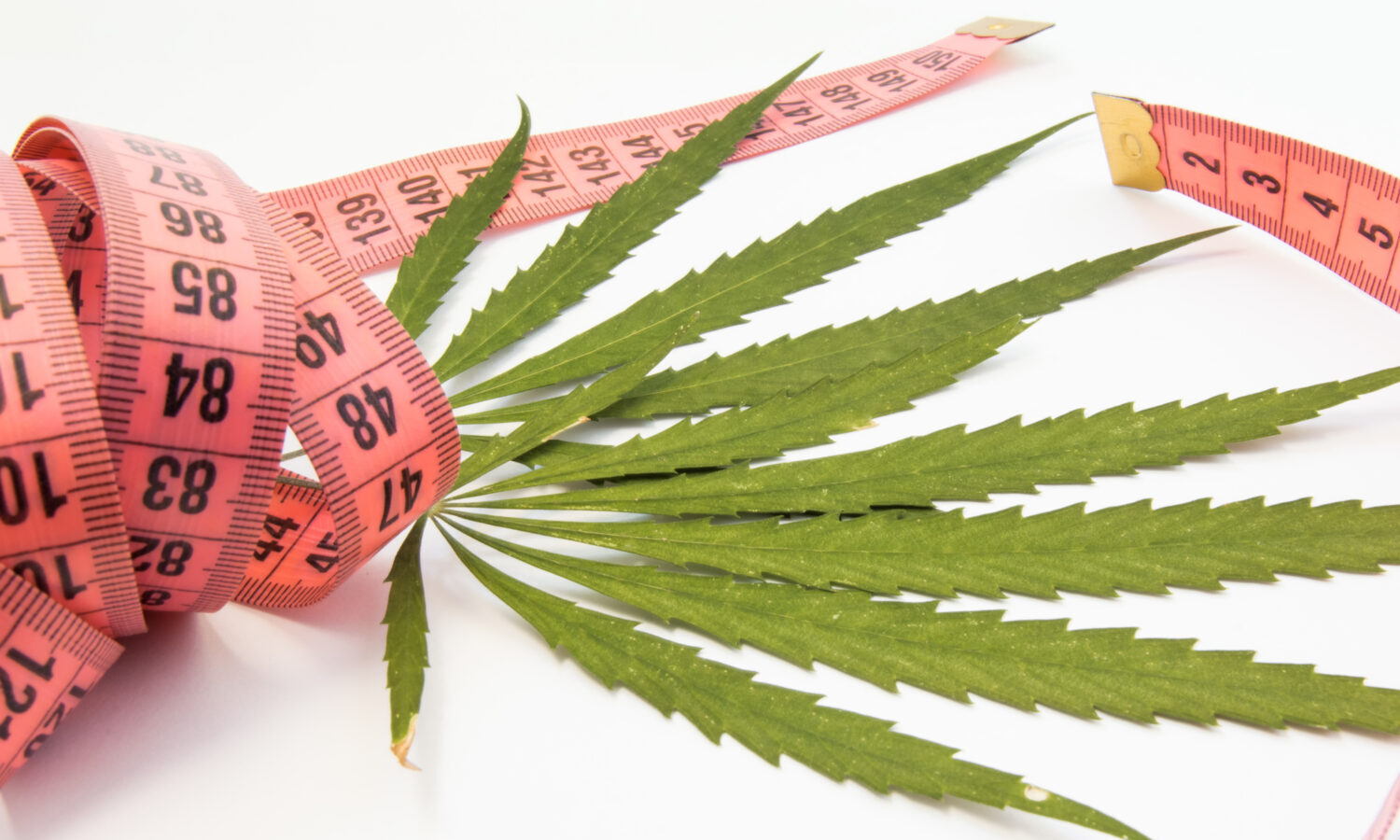Business
If Inflammation Causes Obesity, Can Cannabis Help Break The Cycle?

The relationship between inflammation and obesity springs up from a cycle of events that include high blood pressure, high cholesterol level, and high blood sugar. This is where cannabis can help.
Cannabis has grown considerably in the medical world as new uses of the natural herb are being researched and confirmed. This has fostered the opening of new legal markets for medical marijuana in different regions. It has also helped in increasing the acceptance of cannabis among the populace as many who were initially opposed to the idea of cannabis are now embracing it.
Based on anecdotal reports and extensive studies, cannabis has been found to be useful in dealing with some chronic conditions like depression, insomnia, inflammations, obesity, and so on.
A closer look at inflammation and obesity
Many chronic related conditions are in one way or another related to inflammation. Obesity is no exception to this trend. The condition also comes with different co-morbidities. This is why when physicians prescribe drugs for obesity, the goal of the therapy is to treat the accompanying co-morbidities. These co-morbidities include high blood pressure, elevated cholesterol level, and high blood glucose.

Inflammation is implicated for the co-morbidities that accompany obesity which means it plays a huge role in the development of the condition. Inflammation one of the root causes of high blood pressure and equally promotes the risk of high cholesterol and high blood pressure. A further look into obesity also shows that cytokines which are substances secreted by immune cells have a role to play in the development of obesity. They cause insulin resistance and other health problems which serve as precursors for type 2 diabetes. Type 2 diabetes is known to often lead to obesity.
Obesity does not develop suddenly as it is a product of consistent lifestyle habits. These habits include indulging constantly in a diet high in sugar and processed foods which help to elevate the blood sugar level. With increased glucose levels in the body system, the body responds by increasing the amount of insulin produced in order to remove glucose from the bloodstream.

The unhealthy cycle of obesity
Production of an increased amount of insulin is the body’s response mechanism to prevent a high level of sugar which comes from regular consumption of processed foods. Eventually, the body becomes desensitized to insulin which in turn reduces the ability of the body to respond to the effects of insulin. Invariably, the blood sugar level in the body becomes high, leads to inflammation, and ultimately produces more insulin resistance. This unhealthy cycle continues and the final product is high blood sugar which in turn causes obesity.
This unhealthy cycle also involved the endocannabinoid system (ECS). The ECS works through the unique relationship between endocannabinoids which directly or indirectly affect cannabinoid receptors in the body. The operation of the ECS can promote overeating of processed foods and low nutrient foods which increased the number of endocannabinoids. With increased appetite and more overeating, the unhealthy cycle continues with high blood sugar and insulin resistance.
Cannabis, inflammation, and obesity
Studies have shown a unique relationship exists between cannabinoids, inflammation, and obesity. These unique effects of cannabinoids in the body system have been generally used for medical marijuana. CBD is one of the important cannabinoids in the matrix of cannabis plants and it is effective for reducing inflammation. The cannabinoid has a patent in the US government for its anti-inflammatory activity which shows how much research has been done on the cannabinoid. CBD also works effectively for reducing cholesterol levels and in turn reducing blood sugar. This shows that CBD is useful in reducing the onset of obesity and its co-morbidities.
The implication of ECS in the development of obesity might also prove useful for the effectiveness of CBD in dealing with obesity. CBD interacts with the ECS directly or indirectly to facilitate different responses all over the body. This effect is utilized by CBD to promote the reduction of inflammation throughout the body. CBD is also important to facilitate the reduction of disorderly consumption of processed foods. By reducing the unhealthy consumption of processed foods, CBD, therefore, reduces the development of inflammation and ultimately obesity.

How can cannabis break the cycle?
The common steps outside of the use of cannabis that is used to deal with obesity majorly have to do with lifestyle changes. One major step that is pivotal is a change of eating habits in order to stop the unhealthy cycle and ensure that insulin is effective in removing glucose from the bloodstream. Developing a strong anti-inflammatory food plan and sticking to it is also important to deal with the unhealthy cycle of obesity.
Cannabis through the action of CBD can be very beneficial for the reduction of obesity and its co-morbidities. This is why it is important to incorporate cannabis strains that have high CBD content into the nutrition of such patients. For patients that may have issues with smoking cannabis, there are other forms of consumption that will ensure the target cannabinoid is available for the required effect. CBD already exists in different product forms such as oils, tinctures, topical creams, and transdermal patches.
RELATED: How CBD Can Potentially Combat Obesity
It is also important to ensure that one consults a nutritionist with proper knowledge about the role of the ECS in promoting obesity. Such a professional will be well equipped to provide the patient with advice on which cannabis strains to use to stop food addiction and correct the ECS dysfunction. Such professionals are present in some cannabis dispensaries where they offer important medical and nutritional advice to patients.
Bottom line
The relationship between inflammation and obesity springs up from a cycle of events that include high blood pressure, high cholesterol level, and high blood sugar. This unhealthy cycle is also increased by cytokines secreted by immune cells which promotes insulin resistance. Dealing with inflammation is pivotal to controlling obesity and this is where cannabis can help to break the cycle. CBD is very effective in reducing inflammations in the body which in turn makes it useful for dealing with obesity.
Business
New Mexico cannabis operator fined, loses license for alleged BioTrack fraud

New Mexico regulators fined a cannabis operator nearly $300,000 and revoked its license after the company allegedly created fake reports in the state’s traceability software.
The New Mexico Cannabis Control Division (CCD) accused marijuana manufacturer and retailer Golden Roots of 11 violations, according to Albuquerque Business First.
Golden Roots operates the The Cannabis Revolution Dispensary.
The majority of the violations are related to the Albuquerque company’s improper use of BioTrack, which has been New Mexico’s track-and-trace vendor since 2015.
The CCD alleges Golden Roots reported marijuana production only two months after it had received its vertically integrated license, according to Albuquerque Business First.
Because cannabis takes longer than two months to be cultivated, the CCD was suspicious of the report.
After inspecting the company’s premises, the CCD alleged Golden Roots reported cultivation, transportation and sales in BioTrack but wasn’t able to provide officers who inspected the site evidence that the operator was cultivating cannabis.
In April, the CCD revoked Golden Roots’ license and issued a $10,000 fine, according to the news outlet.
The company requested a hearing, which the regulator scheduled for Sept. 1.
At the hearing, the CCD testified that the company’s dried-cannabis weights in BioTrack were suspicious because they didn’t seem to accurately reflect how much weight marijuana loses as it dries.
Company employees also poorly accounted for why they were making adjustments in the system of up to 24 pounds of cannabis, making comments such as “bad” or “mistake” in the software, Albuquerque Business First reported.
Golden Roots was fined $298,972.05 – the amount regulators allege the company made selling products that weren’t properly accounted for in BioTrack.
The CCD has been cracking down on cannabis operators accused of selling products procured from out-of-state or not grown legally:
- Regulators alleged in August that Albuquerque dispensary Sawmill Sweet Leaf sold out-of-state products and didn’t have a license for extraction.
- Paradise Exotics Distro lost its license in July after regulators alleged the company sold products made in California.
Golden Roots was the first alleged rulebreaker in New Mexico to be asked to pay a large fine.
Source: https://mjbizdaily.com/new-mexico-cannabis-operator-fined-loses-license-for-alleged-biotrack-fraud/
Business
Marijuana companies suing US attorney general in federal prohibition challenge

Four marijuana companies, including a multistate operator, have filed a lawsuit against U.S. Attorney General Merrick Garland in which they allege the federal MJ prohibition under the Controlled Substances Act is no longer constitutional.
According to the complaint, filed Thursday in U.S. District Court in Massachusetts, retailer Canna Provisions, Treevit delivery service CEO Gyasi Sellers, cultivator Wiseacre Farm and MSO Verano Holdings Corp. are all harmed by “the federal government’s unconstitutional ban on cultivating, manufacturing, distributing, or possessing intrastate marijuana.”
Verano is headquartered in Chicago but has operations in Massachusetts; the other three operators are based in Massachusetts.
The lawsuit seeks a ruling that the “Controlled Substances Act is unconstitutional as applied to the intrastate cultivation, manufacture, possession, and distribution of marijuana pursuant to state law.”
The companies want the case to go before the U.S. Supreme Court.
They hired prominent law firm Boies Schiller Flexner to represent them.
The New York-based firm’s principal is David Boies, whose former clients include Microsoft, former presidential candidate Al Gore and Elizabeth Holmes’ disgraced startup Theranos.
Similar challenges to the federal Controlled Substances Act (CSA) have failed.
One such challenge led to a landmark Supreme Court decision in 2005.
In Gonzalez vs. Raich, the highest court in the United States ruled in a 6-3 decision that the commerce clause of the U.S. Constitution gave Congress the power to outlaw marijuana federally, even though state laws allow the cultivation and sale of cannabis.
In the 18 years since that ruling, 23 states and the District of Columbia have legalized adult-use marijuana and the federal government has allowed a multibillion-dollar cannabis industry to thrive.
Since both Congress and the U.S. Department of Justice, currently headed by Garland, have declined to intervene in state-licensed marijuana markets, the key facts that led to the Supreme Court’s 2005 ruling “no longer apply,” Boies said in a statement Thursday.
“The Supreme Court has since made clear that the federal government lacks the authority to regulate purely intrastate commerce,” Boies said.
“Moreover, the facts on which those precedents are based are no longer true.”
Verano President Darren Weiss said in a statement the company is “prepared to bring this case all the way to the Supreme Court in order to align federal law with how Congress has acted for years.”
While the Biden administration’s push to reschedule marijuana would help solve marijuana operators’ federal tax woes, neither rescheduling nor modest Congressional reforms such as the SAFER Banking Act “solve the fundamental issue,” Weiss added.
“The application of the CSA to lawful state-run cannabis business is an unconstitutional overreach on state sovereignty that has led to decades of harm, failed businesses, lost jobs, and unsafe working conditions.”
Business
Alabama to make another attempt Dec. 1 to award medical cannabis licenses

Alabama regulators are targeting Dec. 1 to award the first batch of medical cannabis business licenses after the agency’s first two attempts were scrapped because of scoring errors and litigation.
The first licenses will be awarded to individual cultivators, delivery providers, processors, dispensaries and state testing labs, according to the Alabama Medical Cannabis Commission (AMCC).
Then, on Dec. 12, the AMCC will award licenses for vertically integrated operations, a designation set primarily for multistate operators.
Licenses are expected to be handed out 28 days after they have been awarded, so MMJ production could begin in early January, according to the Alabama Daily News.
That means MMJ products could be available for patients around early March, an AMCC spokesperson told the media outlet.
Regulators initially awarded 21 business licenses in June, only to void them after applicants alleged inconsistencies with how the applications were scored.
Then, in August, the state awarded 24 different licenses – 19 went to June recipients – only to reverse themselves again and scratch those licenses after spurned applicants filed lawsuits.
A state judge dismissed a lawsuit filed by Chicago-based MSO Verano Holdings Corp., but another lawsuit is pending.
Source: https://mjbizdaily.com/alabama-plans-to-award-medical-cannabis-licenses-dec-1/
-

 Business2 years ago
Business2 years agoPot Odor Does Not Justify Probable Cause for Vehicle Searches, Minnesota Court Affirms
-

 Business2 years ago
Business2 years agoNew Mexico cannabis operator fined, loses license for alleged BioTrack fraud
-

 Business2 years ago
Business2 years agoAlabama to make another attempt Dec. 1 to award medical cannabis licenses
-

 Business2 years ago
Business2 years agoWashington State Pays Out $9.4 Million in Refunds Relating to Drug Convictions
-

 Business2 years ago
Business2 years agoMarijuana companies suing US attorney general in federal prohibition challenge
-

 Business2 years ago
Business2 years agoLegal Marijuana Handed A Nothing Burger From NY State
-

 Business2 years ago
Business2 years agoCan Cannabis Help Seasonal Depression
-

 Blogs2 years ago
Blogs2 years agoCannabis Art Is Flourishing On Etsy













